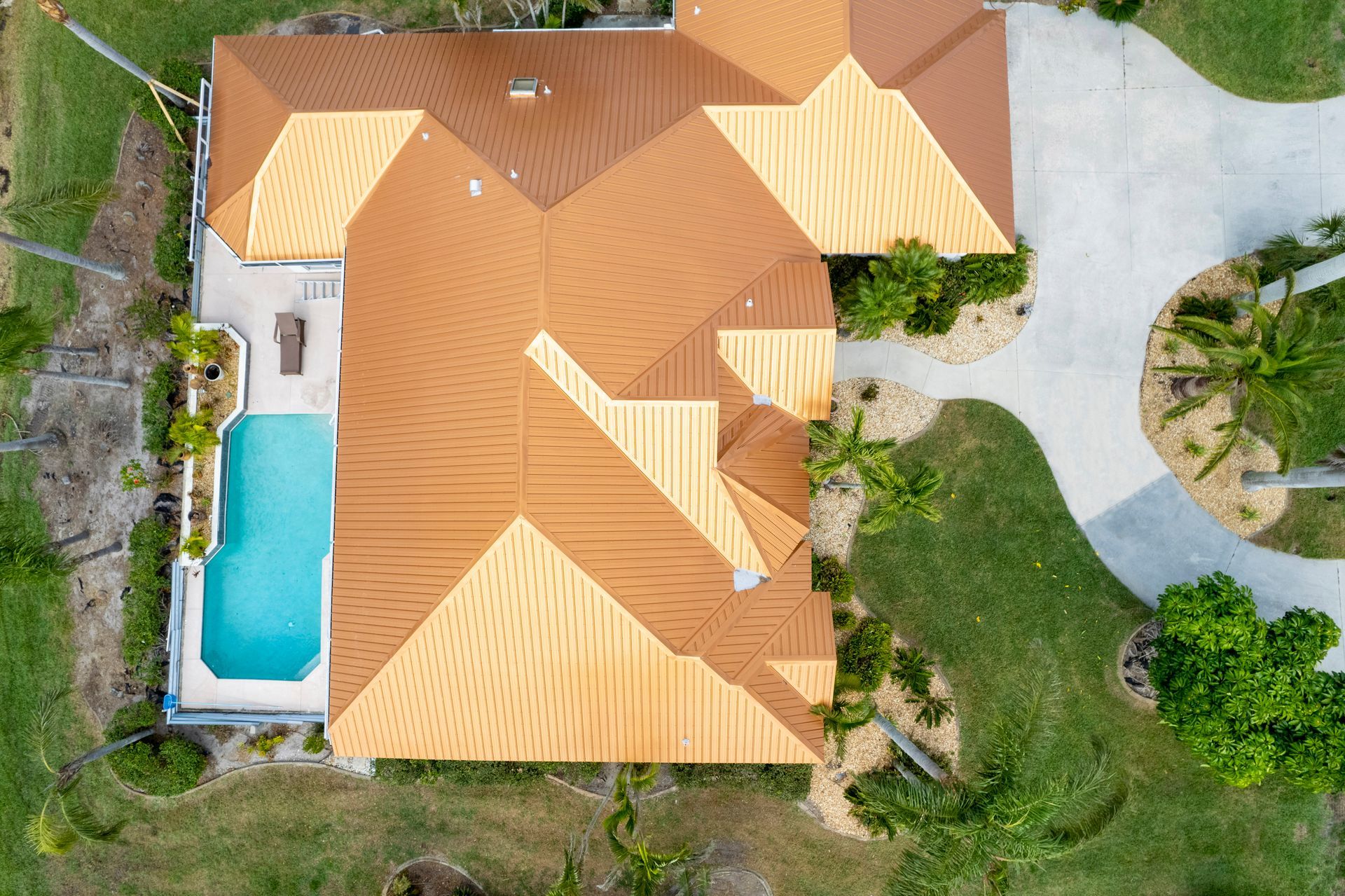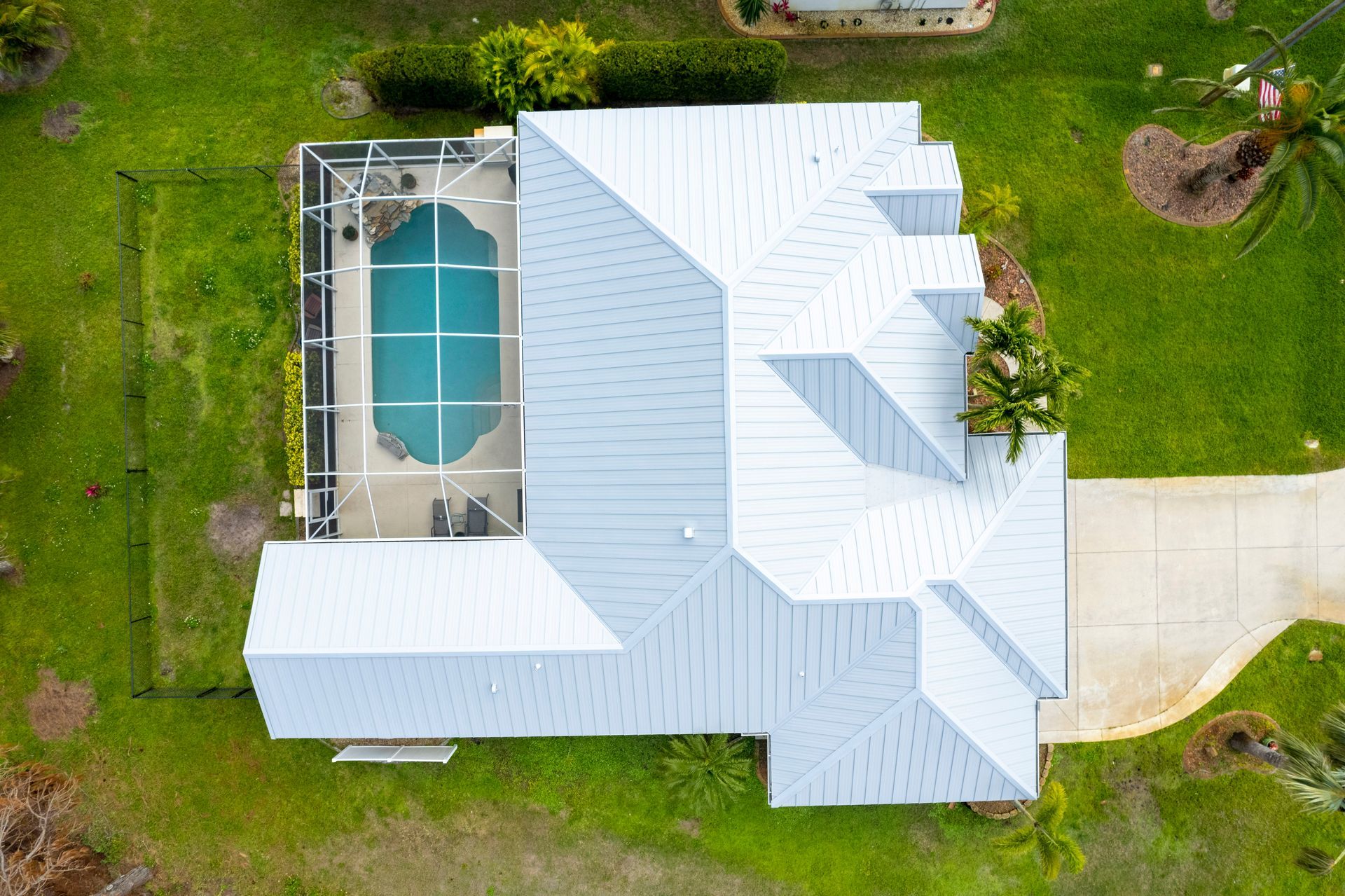Shingle Roofing FAQs
Have any questionS?
Reach out to our roofing specialists for more answers on the various options for your home.
How long does a shingle roof last in Florida?
Shingle roofs in Florida typically last 15-20 years, depending on the quality of the shingles and the maintenance performed. The intense sun, humidity, and storms in Florida can shorten the lifespan of shingles. Regular inspections and repairs can help extend the life of your roof.
What types of shingles are best for Florida’s climate?
Architectural or asphalt shingles with high wind resistance and UV protection are ideal for Florida's weather. These shingles are designed to withstand high winds, heavy rain, and intense sunlight, common in coastal regions. Always consult a roofing expert to choose the best option for your home.
Are shingle roofs resistant to hurricanes?
Some shingle roofs are rated to withstand winds up to 130 mph, but it depends on the type of shingles used and how they are installed. Architectural shingles offer better hurricane resistance than standard 3-tab shingles. Proper installation is key to ensuring your roof holds up in severe weather.
How much does it cost to install a shingle roof?
The cost of installing a shingle roof depends on several factors, including the size of the roof, the type of shingles chosen, and the complexity of the installation. Architectural shingles typically cost more than traditional 3-tab shingles due to their durability and aesthetic appeal. For an accurate estimate, it's best to consult with a professional roofer who can assess your specific needs.
How do I know if my shingle roof needs replacement?
Signs your shingle roof may need replacement include missing or cracked shingles, granules in your gutters, leaks, or frequent repairs. If your roof is over 15 years old and has visible wear and tear, it's a good idea to get it inspected by a professional roofer.
Can shingle roofs handle heavy rain and moisture?
Yes, shingle roofs are designed to shed water effectively, but they must be installed correctly with proper flashing and underlayment. In Florida’s wet climate, ensuring your roof has adequate ventilation and drainage is crucial to preventing water damage.
Do shingle roofs require a lot of maintenance?
Shingle roofs require regular inspections, especially after storms, to check for damage such as missing or cracked shingles. Keeping your gutters clean and ensuring debris does not accumulate on the roof will also extend its life. Minor repairs can help prevent major issues down the line.
Can shingle roofs be repaired, or do they need to be replaced entirely?
If only a few shingles are damaged, a repair may be sufficient. However, if the roof has widespread damage or is nearing the end of its lifespan, a full replacement might be more cost-effective. A roofing professional can assess the condition and provide the best recommendation.
What colors are available for shingle roofs?
Shingle roofs come in a variety of colors, including shades of gray, brown, black, and even more vibrant colors like red and green. Lighter colors can reflect more sunlight, making them a good choice for Florida’s hot climate, while darker colors may offer a more traditional look.
Are shingle roofs energy efficient?
Some shingles are designed to reflect solar heat, which can help reduce cooling costs in hot climates like Florida. Cool roof shingles use special coatings or materials to minimize heat absorption and can contribute to a more energy-efficient home.
How do I prevent shingle damage from heat and humidity?
To protect your shingle roof from heat and humidity, ensure proper ventilation in your attic, which helps regulate temperature and moisture levels. Regular inspections for signs of wear, such as curling or cracking shingles, are essential in hot climates like Florida. Additionally, choosing shingles with UV protection can help prevent damage caused by prolonged exposure to the sun.
Can solar panels be installed on a shingle roof?
Yes, solar panels can be installed on a shingle roof. However, it's important to ensure the roof is in good condition before installation. Installing solar panels on an older or damaged roof may lead to complications, so a roofing inspection is recommended beforehand.



